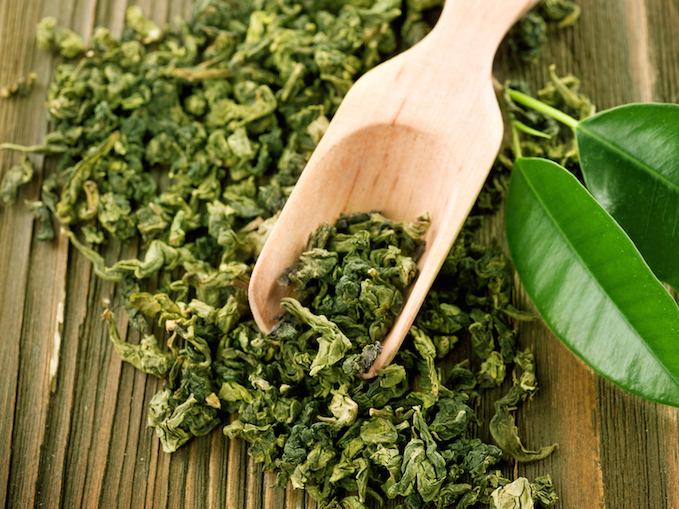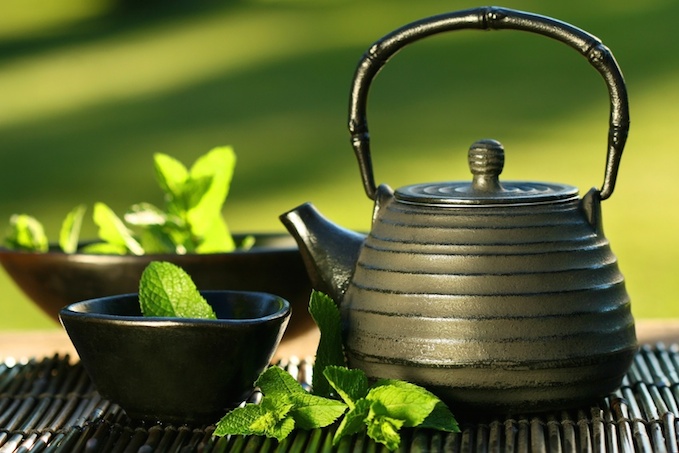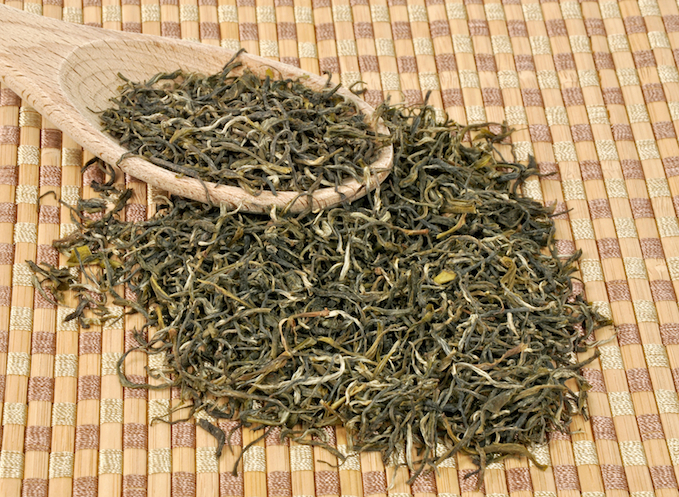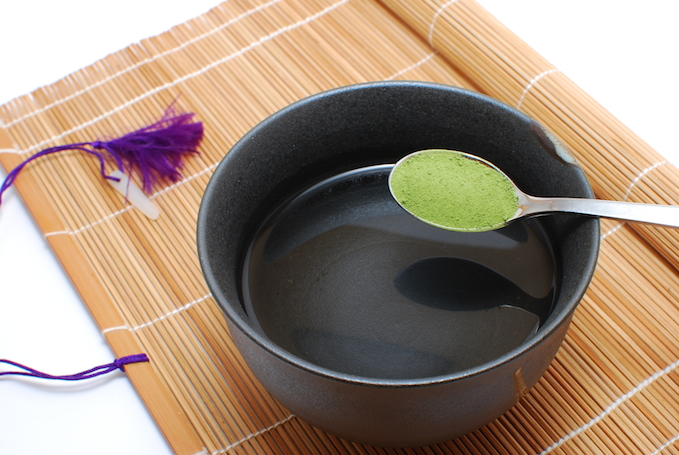The 10 Biggest Benefits Of Green Tea

You’ve probably heard about green tea before…
It is one of those supplements, much like fish oil, that is increasingly recommended by both doctors and health aficionados alike.
This particular type of tea originated in China, and has been widely-consumed in many parts of Asia for years; however, its popularity in the west is still relatively recent.
For years, if Americans drank tea at all, it would generally be some form of black tea.
And while black tea certainly has its own share of benefits, green tea uniquely contains massive quantities of Flavonoids, a powerful antioxidant, with strong anti-inflammatory properties.
Still, you obviously never want to blindly dive headfirst into taking any new health supplement. It’s always wise to do some research first – especially since so many supplements are simply ineffective, if not outright scams.
To help you get the facts straight, this article will go over some of the biggest benefits of green tea, so you can then decide for yourself if it makes sense for you take.
1) Weight Loss

Green tea is often recommended for people trying to lose weight.
This is because it has been shown to boost your metabolic rate, thereby allowing you to burn more calories.
In addition, there have been numerous studies that have demonstrated green tea helping to reduce overall body fat levels.
One study in particular concluded that green tea consumption could account for a 17% increase in fat oxidation.
It is believed that this weight loss and body fat reduction is the result of the heavy concentrations of Catechins in green tea, which is an antioxidant and one of the flavonoids that I mentioned above.
2) Diabetes

Diabetes is a major problem in many western countries – largely as a consequence of pervasive high-sugar diets.
Yes, there are now a mind-blowing 300 million people around the world that have been diagnosed with type 2 diabetes!
Basically, type 2 diabetes has to do with high blood sugar levels and a gradual reduction in insulin sensitivity (known as insulin resistance).
Green tea has been shown to help increase insulin sensitivity, thereby helping to reduce overall blood sugar levels.
In fact, a comprehensive review of 7 different clinical studies of green tea concluded that regular consumption was linked to an 18% reduction in the risk of developing type 2 diabetes.
3) Heart Disease

Like diabetes, heart disease is another problem faced particularly by many western countries.
It is often related to poor diet and obesity – although it is a complex disease with numerous factors that contribute to its development.
In fact, heart disease and other cardiovascular-related diseases (such as strokes) are the leading cause of death globally, according to the WHO.
Green tea has been shown to help combat heart disease, by reducing some of the specific risk factors that cause it.
Studies have shown that it can help reduce total cholesterol levels, while also decreasing LDL oxidization, which is one of the major causes of heart disease.
Indeed, multiple studies have concluded that regular green tea drinkers have a dramatically reduced risk of developing heart disease – with one study in particular citing a 11% reduction.
4) Cancer

The big C. Nobody likes to think about it.
It seems, however, that green tea has the potential to reduce the risk of developing cancer – which, like heart disease, is one of the leading causes of death.
There are many different types of cancer – but the common factor is that all of them stem from uncontrolled cell mutations.
Antioxidants are well-established as helping to reduce the risk of cancer, and, as I mentioned before, green tea is full of antioxidants.
And while green tea may help protect against multiple forms of cancer, there have been a variety of studies conducted on how green tea consumption can impact the development of specific cancers.
- Prostate cancer: A 2007 study conducted in Japan found that men who regularly drank green tea had a 48% reduction in risk of developing prostate cancer.
- Breast cancer: A detailed 2006 analysis of multiple studies found that women who regularly drank green tea had a 22% reduction in risk of developing breast cancer.
In addition, numerous other studies have demonstrated the link between green tea consumption and reduced cancer risk.
So while I am certainly not suggesting that green tea is a cure for cancer, it seems pretty safe to say that it can reduce several of the key risk factors.
5) Blood Pressure

Many people suffer from high blood pressure – and sufferers have a greater risk of all sorts of heart related problems, including coronary artery disease and heart failure.
Not fun.
Green tea has been shown to help reduce blood pressure in some people. In fact, a recent 2014 meta-analysis of over 20 clinical trials suggested that green tea drinkers had lower systolic blood pressure levels than non-drinkers.
That being said, there is also some evidence to suggest that the caffeine in green tea can elevate blood pressure, at least temporally.
For that reason, if you suffer from high-blood pressure, I would recommended sticking to decaffeinated green tea.
Finally, it has recently been suggested that green tea can potentially interfere with the blood-pressure medication Nadolol, so please consult your physician before supplementing with green tea if you are already taking blood pressure medication.
6) Immunity

Remember those Cetechins that I mentioned earlier, and how they could help with weight loss?
Well, it turns out that they have other beneficial effects as well.
One of these is the ability to attack viruses and bacteria, potentially lowering your risk of infections and reducing the frequency that you get sick.
7) Tooth Decay

Following on from the previous point, those crafty Cetechins also seem to play a role in helping to prevent dental problems.
You see, one of the main bacteria that causes tooth decay and plaque formation – the sinister sounding Streptococcus mutans – is negatively impacted by these Cetechins.
For this reason, the consumption of green tea has been shown to improve dental health and reduce the risk of cavities.
Do you suffer from bad breath? Well, here’s more good news – drinking green tea may be able to help with that too.
8) Skin

If you’re reading this blog, it is a safe bet that you care about how you look.
And one of the biggest determinants of your appearance is the quality of your skin.
Thankfully, green tea seems to have you covered there as well.
Antioxidants have long been associated with a reduction in facial wrinkles, since they help combat the free-radicals that damage your skin.
As I’ve mentioned before, green tea is chock full of antioxidants, so consuming it regularly could help ensure that you stay looking young.
9) Depression

Suffer from depression? Green tea may be able to help you there as well.
You see, green tea contains an amino acid called Theanine, which has been shown to help reduce anxiety and depression.
Theanine is known to have a calming and relaxing effect when taken in sufficient volume – however, you should note that you need to drink up to 6 cups a day to start seeing such benefits, making a concentrated green tea supplement more practical.
10) Brain Function

Last but not least, green tea can potentially help your brain in a number of different ways.
In the short term, green tea supplementation has been demonstrated to improve cognitive functioning.
In the longer-term, several studies have concluded that regular green tea consumption will substantially reduce the risk of both Alzheimer’s and Parkinson’s diseases.
So, if you’re looking for improved brain power – or want to help protect your brain as you age – you should definitely consider supplementing with green tea.
In Summary

No doubt about it, there are a lot of potential health benefits to consuming green tea…
From your heart to your brain, your mood to your skin, this Flavonoid-packed green wonder has a lot to offer you.
The question, then, is not should you be taking green tea, but how to take it.
Should you be drinking it or taking a supplement; and, if you decide to go the supplement route, which one should you be taking?
Moreover, how much do you need to take each day to see the most benefits?
All of these are good questions, and I promise to answer all of them (and more) in my followup guide next week.
Stay tuned!